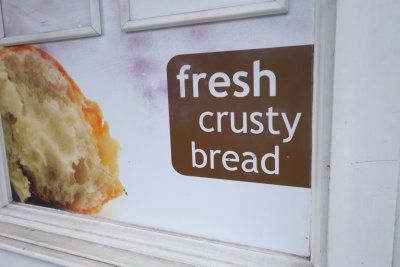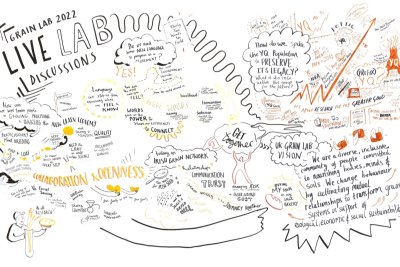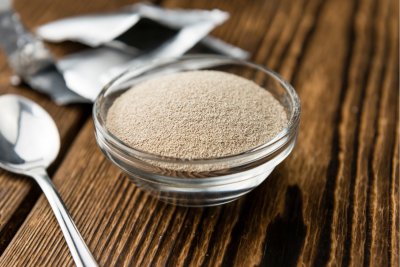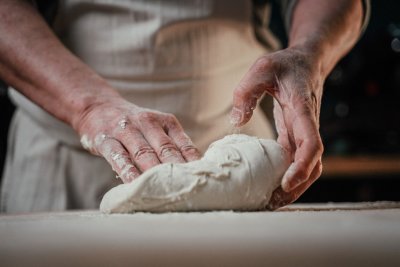No sign of better bread regs
Wholegrain, fresh and artisan bread still not on Defra’s menu.

The Government continues to decline to commit to discussing the Real Bread Campaign’s Honest Crust Act proposals for updated and improved composition, marketing and labelling to better protect shoppers and in support of small businesses.
Real Bread Campaign coordinator Chris Young said: “They keep saying that the protracted process of reviewing the Bread and Flour Regulations isn’t a suitable place to discuss terms including wholegrain, artisan, freshly-baked etc, but repeatedly ignore our requests for details of when and through what mechanism these issues can be discussed.”
In response to a letter from Dr Philippa Whitford, the SNP MP for Central Ayrshire, Mark Spencer, the Minister of State at the Department for Environment, Food and Rural Affairs, wrote:
Dear Philippa,
Thank you for your letter of 14 April about the public consultation on proposals to amend The Bread and Flour Regulations 1998.
I agree that it is essential that consumers have trust in the food they eat, and we recognise the important role labelling and quality standards can play. The scope of the public consultation concerned potential changes to The Bread and Flour Regulations 1998 and The Bread and Flour (Northern Ireland) Regulations 1998 only. These regulations cover specific compositional and labelling requirements for bread and flour on top of wider labelling rules that apply to food more generally.
The proposals included in the consultation address the most pressing aspects identified for change. These include the mandatory addition of folic acid to non-wholemeal flour to reduce neural tube defects in foetuses, and improvements to the legislation which will help reduce burdens for businesses while still protecting the health of consumers.
Labelling rules regarding processing aids and unwrapped foods are covered by Regulation 1169/2011 on food information to consumers and therefore proposals regarding these points were deemed out of scope of this consultation exercise. The UK has high standards on the information provided on food labels. Existing food information and labelling rules, including those on ingredient listing, ensure that food is labelled effectively to enable consumers to make safe and informed choices on the food they buy and consume. For practical reasons, there are fewer mandatory labelling rules when food is sold loose.
For loose food, the name of the food and allergen information must be made available. Processing aids are only used for the processing of raw materials, foods, or their ingredients to fulfil a certain technological during treatment or processing. While this may result in unintentional and technically unavoidable presence in the final food, this presence must not have any technological effect on the final product. Where trace amounts could cause allergies or intolerances in some people, and some of those allergies or intolerances constitute a danger to the health of those concerned, information must be provided to the consumer.
The Bread and Flour Regulations 1998 was not seen as a suitable instrument to introduce new controls on terms such as “freshly baked” and “baked in store” as these can be applied more widely to a range of products. The same is also true regarding the definition of terms such as “wholegrain” and “artisan”. Regulation 1169/2011 stipulates that food labels must not mislead consumers as to the characteristics of the food and as to its nature, identity, properties, composition, quantity, durability, country of origin or place of provenance, method of manufacture or production.
While the Government is always looking for ways to improve our regulations, legislative intervention is just one option and should be restricted to areas where there is clear market failure. The bread and flour technical stakeholder group considered the need for a legal definition of sourdough to be introduced into the Bread and Flour Regulations.
There were divergent views expressed on the matter, however the group broadly agreed that a regulatory approach was not needed. We are keen to avoid creating further regulatory barriers to trade currently. The Government has been supportive of non-regulatory measures such as the development of an industry code of practice that could help achieve a better mutual understanding in this area and help address and communicate to consumers the technical differences around the production of sourdough.
We are working closely with the Devolved Administrations and the Department of Health and Social Care who are leading on the health aspects of the policy to introduce the mandatory addition of folic acid to non-wholemeal wheat flour. The proposed level of 250micrograms of folic acid per 100g of flour follows the position statement from The Committee on Toxicity of Chemicals in Food, Consumer Products, and the Environment that 1mg/day of folic acid in the form of supplements (not including dietary folates) was still the most appropriate level to use. This aligns with advice of the Committee Scientific Advisory Committee on Nutrition in ensuring mandatory fortification does not lead to an increase in the proportion of the population with folic acid intakes above the Guidance Level. The level of folic acid added to flour will be kept under review as part of the post implementation policy monitoring and evaluation.
Please do not hesitate to get in touch if you need further information.
Yours sincerely,
Rt Hon Mark Spencer MP
See also
- ‘Withdraw sourfaux code support’ urge 1000+ bakers and buyers
- Closer to a wholegrain of truth?
- A wholegrain of truth?
Published Tuesday 6 June 2023
Real Bread Campaign: The Real Bread Campaign finds and shares ways to make bread better for us, better for our communities and better for the planet. Whether your interest is local food, community-focussed small enterprises, honest labelling, therapeutic baking, or simply tasty toast, everyone is invited to become a Campaign supporter.





